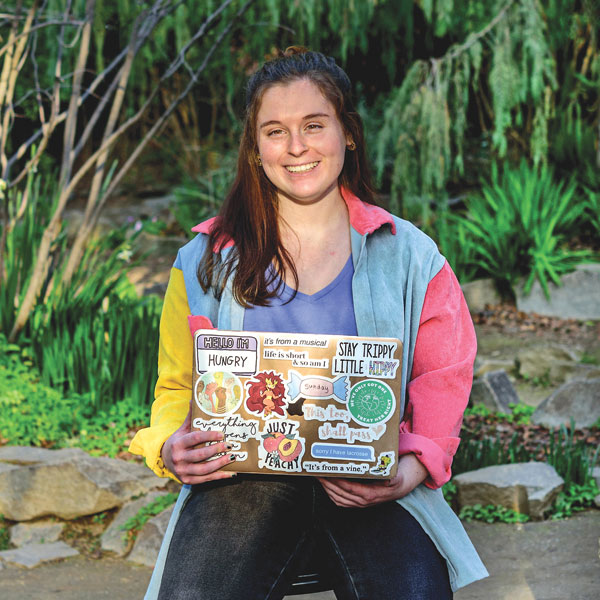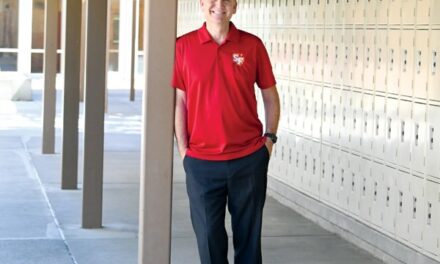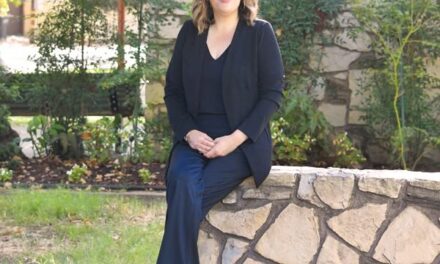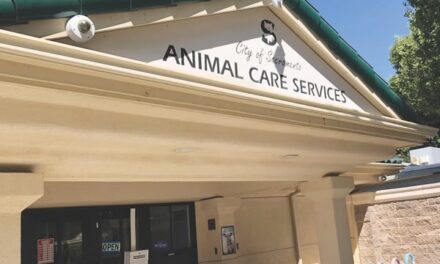Unwanted Test
Students move ahead despite virus
By Natalie Michaels
February 2021
For Sacramento students applying to college this fall, the future is shrouded in uncertainty. Hailey Kopp, a senior at St. Francis Catholic High School, says, “Things aren’t going as planned, so it has been difficult to adapt.”
Local high school seniors have received countless lessons in adaptability as they tackle the complex process of deciding where and when to begin their college careers amid COVID-19.

In normal times, the college admission experience involves months of preparation, deadlines and decisions. There are standardized tests, complex applications and invasive questions about financial aid. There are personal essays and campus visits. And there is the wait for acceptance or rejection. Each step heightens anxieties in students and parents.
Kopp describes her college search as “a lot of webinars.” She says college-sponsored Zoom calls have taken the place of traditional college visits. For Kopp, the digitization of college resources has positives and negatives.
On the positive side, the pandemic opened new doors. Kopp had more time to research universities beyond California. Her parents had extra time to help her navigate the application process. But lockdowns changed her expectations for the fall. “My image of college is definitely different than before,” she says.
Chinh Chinh Nguyen, Kopp’s classmate at St. Francis, has different fears. She focuses on how the pandemic changed the application review process at some colleges, especially for California State University and University of California.
The cancellation of SAT and ACT standardized tests and the suspension of score requirements at many schools put some of her friends—who have studied for the tests since their freshman year—at a disadvantage, Nguyen believes.
For others, test waivers have been an important aid. Debbie Austin, a college adviser at St. Francis, believes the decreased emphasis on standardized tests has been the “silver lining of the pandemic.”
In the absence of test scores, college essays are becoming more important, Austin says. She hopes an increased emphasis on essays will lead to more holistic evaluations.
The pandemic disrupted the high school experience for all local students. With campuses closed, teaching shifted to distance learning. It was a negative transition for many. Ezra Hammel decided to move ahead with his life, graduating early from McClatchy High School.
“I spent the spring semester online and I hated it,” Hammel says. “I didn’t want to go through another year of that.”
Hammel planned to visit the South Pacific as part of a gap-year program, but those plans were upset by virus travel restrictions. Instead, he’s completing gap program classes online.
Local college students—whose traditional collegiate experience was upended by the pandemic—must reckon with a new reality.
Dani Wiesenthal, a McClatchy graduate and sophomore at San Diego State, says the pandemic changed her priorities. After moving back home, she was uncertain about returning to her campus. “I feel like if I go back to San Diego, I’m going to be starting over,” she says, noting her freshman year presented challenges and the return home provided relief.
Reese Farrell, a Mira Loma graduate and sophomore at Lewis & Clark College in Oregon, was able to stay on the Portland campus. Farrell describes herself as “lucky” and notes things “could be worse.”
She says, “I feel like everyone has expectations of what college should be, and I feel like the biggest change is not being as social as we’d like.” In comparison to other friends from Sacramento, Farrell feels grateful to be one of the few who has remained on campus.
The pandemic magnified traditional anxieties, adding confusion and new rules. Melissa McClellan, director of college counseling at Christian Brothers High School, says college admissions are “experiencing a state of flux.”
Individual experiences during the pandemic are varied and nuanced. Uncertainty is the operative word as the college admission process evolves, student priorities shift and expectations change.
Spring brings decision time, when universities send out admission (and rejection) letters and financial aid offers. In 2021, it’s a season when high school seniors weigh their options in an atmosphere of anticipation and uncertainty.
Natalie Michaels is graduating this year from Heritage Peak Charter School. She can be reached at nataliermichaels@gmail.com.
















